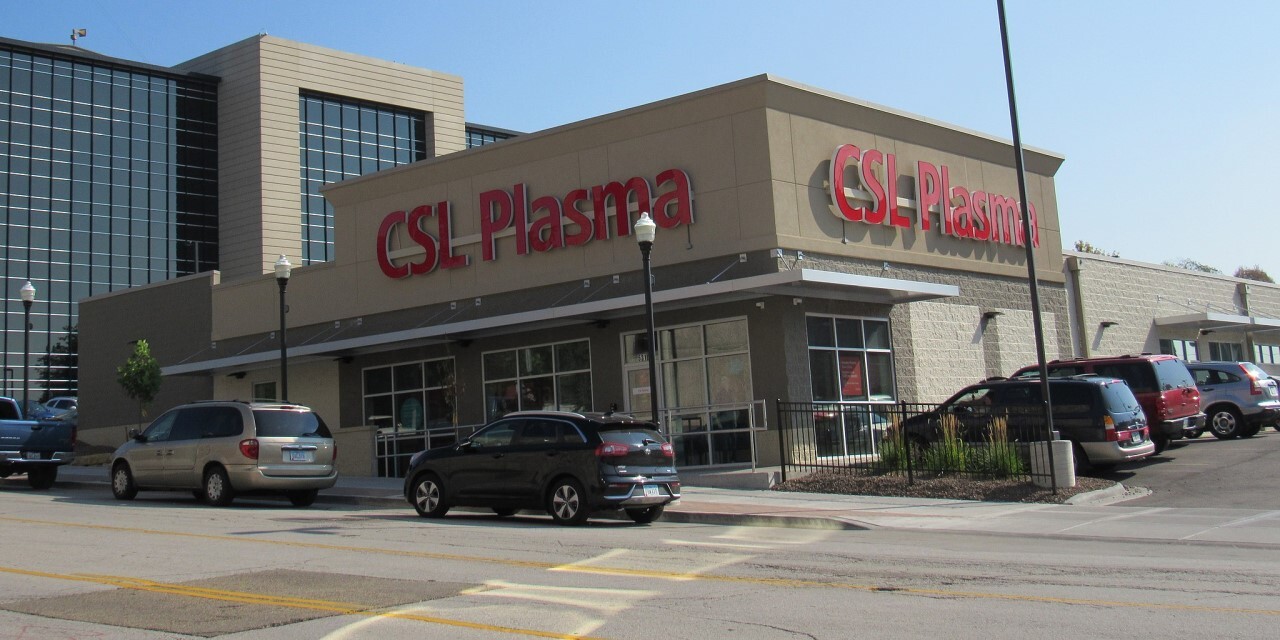A federal judge has ruled in favor of the state on part of its lawsuit claiming blood collection company CSL Plasma violated state and federal disability protection laws when it refused to allow potential blood donors who use service animals or are deaf to donate their plasma and get paid.
In June 2020, Illinois Attorney General Kwame Raoul brought a discrimination lawsuit against CSL Plasma and its owner, CDL Behring, alleging violations of the Americans with Disabilities Act and the Illinois Human Rights Act. The state then asked U.S. District Judge Mary Rowland to grant partial summary judgment on the issue of whether a plasma facility meets the definition of “service establishment” under the laws’ “places of public accommodation” classifications.
CSL Plasma operates more than 300 donation centers worldwide, including 14 in Illinois. According to court information, CSL Plasma pays donors about $40 per donation, then supplies plasma to CSL Behring, which manufactures plasma-derived medical products sold worldwide for profit. There are extra financial incentives for new and repeat donors.
In an opinion filed Oct. 18, Rowland sided with the state on the key legal question. Although CSL is able to restrict donors based on physical factors like age, weight and medical conditions, or other qualifiers such as date of the most recent donation or the proximity of the donor’s residence to the collection facility, the state said CSL is guilty of “preventing individuals with mental health disabilities who use a service animal or who are deaf from providing plasma and being compensated for their time.”
The federal government filed a statement of interest in favor of the state’s position regarding CSL Plasma centers as “places of public accommodation,” as the ADA defines. Rowland noted the U.S. Seventh Circuit Court of Appeals hasn’t yet addressed the question, but said three different federal appellate courts have taken up the issue.
In 2016, a 10th Circuit panel ruled against CSL competitor Octapharma in Levorsen v. Octaphrama for “two exceedingly simple reasons: It’s an establishment. And it provides a service.” In 2018, CSL asked a Fifth Circuit panel to rule differently, and although that court (in Silguero v. CSL Plasma) agreed with the 10th Circuit’s definition, it said CSL facilities didn’t qualify, as they don’t provide a service to customers.
Then in 2019, a Third Circuit opinion in Matheis v. CSL Plasma rejected the Fifth Circuit’s position, writing “no support exists for the Fifth Circuit’s statement that donors do not benefit from the act of donating (because) donors receive money, a clear benefit, to donate plasma.”
Rowland said she used that procedural history to inform her interpretation of the ADA, which she found unambiguous.
“It is undisputed that the donation centers are places of business” Rowland wrote. “It also is undisputed that these donation centers provide a helpful act or useful labor that does not produce a tangible commodity: they help people who wish to donate plasma by providing the necessary equipment and medical specialists. And while the plasma they extract is processed into a component of medicinal products sold by pharmaceutical companies, the donation centers themselves provide no tangible commodity to the donors.”
Even if someone presents a plasma sample out of altruism, Rowland continued, they still benefit from the provision of proper equipment and trained staff needed to make the donation possible. She said the same analysis applies under the state law.
Although the Illinois Human Rights Commission in 2019 held a CSL Plasma center wasn’t “a place of public accommodation,” Rowland said that administrative decision isn’t binding on a federal court and further said the “Commission relief on an outdated version of the IHRA.” When the General Assembly amended the act in 2007, it mirrored the ADA’s list of public accommodations, which is what the federal appeals panels used in their findings earlier in the interceding decade.
The tussle with the state over the question of disability accommodations only marks the latest legal row for CSL over Illinois law.
Rowland’s ruling comes roughly three months after CSL Plasma agreed to pay $9.9 million to settle a class action that alleged it violated the Illinois Biometric Information Privacy Act when collecting fingerprint scans from donors. Other plasma collectors, including BioLife and Octapharma, already settled similar lawsuits. Octapharma established a $9.9 million settlement fund for almost 77,000 members, while BioLife had a class of more than 57,000 donors and a settlement of almost $6 million.
